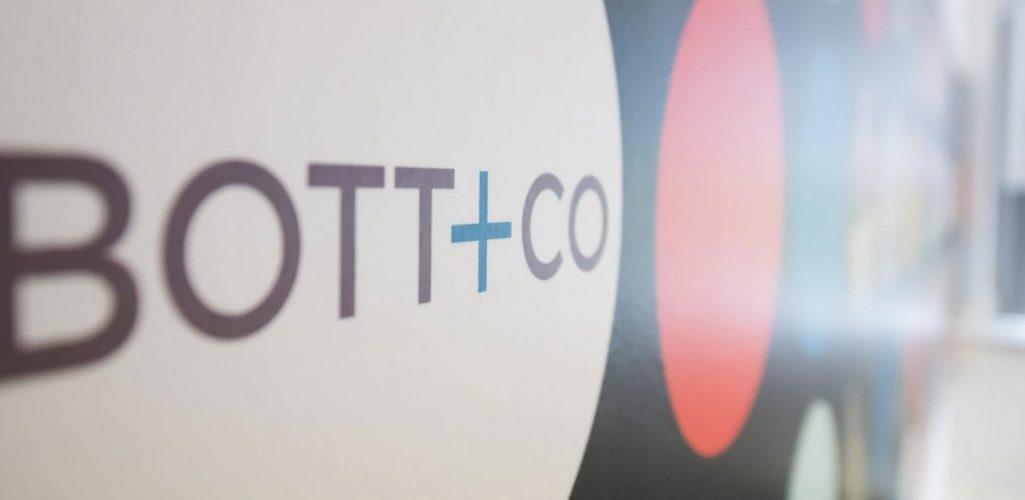The ECJ ruling in the case of van der Lans v KLM has confirmed that airlines are required to pay compensation when flights are delayed due to unforeseen technical problems.
The ECJ ruled that unforeseen technical problems are part of the normal course of activities for an airline and are therefore not extraordinary.
Here we explain what the case is about and how it could affect flight delay compensation claims in England and Wales.
In February 2015 Bott and Co won the case of Allen v Jet2.com – the test case which meant that airlines could not stay (put on hold) UK cases pending the outcome of the van der Lans case.
Why Choose Bott and Co?
-
A History Of Success
We have claimed over £85m in flight compensation from the airlines.
-
Expert Legal Advice
Recognised not just within our industry but also by Martin Lewis as “pioneers” in our field.
-
On Your Side
Completely independent, our only focus is helping you claim for what you are legally entitled to.
-
Fully Regulated
We are members of the Solicitors Regulation Authority. Your claim is in safe hands.
What Is van der Lans V KLM All About?
The van der Lans case looked at whether a technical problem that arises spontaneously (as opposed to being discovered during routine maintenance) is an extraordinary circumstance under EU Regulation 261/2004.
In the landmark case of Huzar v Jet2.com the Supreme Court held that technical problems are not extraordinary circumstances because they are inherent in the normal activity of an airline and therefore not ‘out of the ordinary’.
Claim Flight Compensation With Bott and Co
However, KLM had forward a number of complicated questions surrounding technical issues, mostly focusing on a clause in EC 261/2004 and a paragraph from case law:
1.) Recital 14 of the preamble to Regulation EC 261/2004
2.) Paragraph of Wallentin-Hermann v Alitalia Judgment
In order to understand the questions that have been put to the ECJ, it helps to know the content of these clauses:
Recital 14 Of The Preamble To Regulation EC 261/2004
‘As under the Montreal Convention, obligations on operating air carriers should be limited or excluded in cases where an event has been caused by extraordinary circumstances which could not have been avoided even if all reasonable measures had been taken.
Such circumstances may, in particular, occur in cases of political instability, meteorological conditions incompatible with the operation of the flight concerned, security risks, unexpected flight safety shortcomings and strikes that affect the operation of an operating air carrier.’
The law is clear. We have had over a decade of pro-passenger judgments following complicated legal argument after complicated legal argument. And yet we find ourselves at the Highest Court in Europe again waiting for another decision on a point which has been adequately addressed by the courts previously.
Paragraph 22 Wallentin-Hermann
‘It is apparent from the statement in the preamble to Regulation No 261/2004 that the Community legislature did not mean that those events, the list of which is indeed only indicative, themselves constitute extraordinary circumstances, but only that they may produce such circumstances.
It follows that all the circumstances surrounding such events are not necessarily grounds of exemption from the obligation to pay compensation provided in Article 5(1)(c) of that regulation.’
The (simplified) key questions KLM have put to the ECJ are:
1. How must the concept of ‘event’ in recital 14 of EC 261/2004 be interpreted?
2. Are the ‘events’ mentioned in Paragraph 22 of Wallentin the same as the ‘event’ referred to in recital 14?
3. If ‘unexpected flight safety shortcomings’ are not themselves an extraordinary circumstance (but instead something that may produce an extraordinary circumstance), what should constitute an ‘extraordinary circumstance?’
4. KLM says that the Wallentin judgment suggests that a technical problem that comes under the category of ‘unexpected flight safety shortcomings’ might be extraordinary if it relates to an event which is not ‘inherent’ in the normal activities of the airline. So they are asking ‘If the term ‘inherent’ is to be interpreted as meaning that only events that are within the control of the air carrier.
5. Following the above questions, does that mean a technical problem which arose spontaneously and could not have been detected during routine maintenance checks should be classed as an extraordinary circumstance?
What Does Bott and Co Say About van der Lans v KLM?
- The questions surrounding technical issues have already been answered in the Huzar and Wallentin rulings.
- In Huzar v Jet2.com LJ Elias said that he doubted the European Commission intended for a forensic examination of events of this nature.
- Inherency and control are two entirely separate things. Just because something is out of the airline’s control, that doesn’t mean it cannot be inherent. The law effectively says that it may not be the airline’s fault, but it is their responsibility.
Claiming With Bott and Co
Bott and Co’s Flight Delay Solicitor Coby Benson Said:
“This is a prime example of what can occur in law when an industry like the airlines seek to challenge it.
“The law is clear. We have had over a decade of pro-passenger judgments following complicated legal argument after complicated legal argument. And yet we find ourselves at the Highest Court in Europe again waiting for another decision on a point which has been adequately addressed by the courts previously.
“The law says when passengers should be paid. van der Lans shows us that you will still have to pursue that entitlement through the legal system and that you should be prepared for a lengthy, complicated, arduous fight because the airlines continue to dispute these cases again and again and again.”
Claim By Airline
How Could This Case Affect My Flight Claim?
The important thing about van der Lans v KLM is that flight delay claims will now be governed by whatever is said within the judgement.
So if you’re taking your flight delay claim to court yourself, what you have understood to be the law about your rights could effectively be rendered redundant. You’ll need to read the judgment carefully and familiarise yourself with the it so that you understand any new legal test set down by the Court and retrospectively apply it to the facts of your case.
If you’ve entrusted Bott and Co with your claim, our Flight Delay Compensation Solicitors will be doing this for you, so there’s no need to worry about familiarising yourself with the new ruling if you don’t want to.
If you’re dealing with the claim yourself and are feeling overwhelmed by the new ruling, you can call us for free advice on how van der Lans affects you.
Meet Our Solicitors
Coby Benson

A member of The Law Society and a SRA Registered Solicitor, Coby has been instrumental in establishing flight delay compensation law in the UK, including playing a significant part in the landmark cases of Huzar v Jet2 and Dawson v Thomson at The Supreme Court.
Coby is regularly asked for comment in the national media, regularly featuring in The Daily Telegraph, The Times, The Guardian and The Independent as well as appearing on BBC Television, Sky News, ITV and BBC Radio 4 and Radio Five Live.

